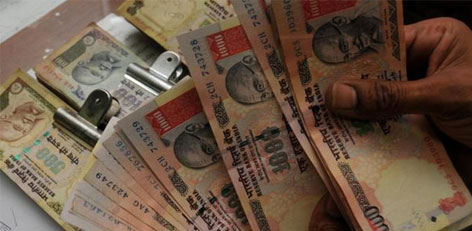Low level government employees draw higher pay than private counterparts
Posted on: 05/Jul/2016 12:22:09 PM

As compared to low level employees with the private sector, those in the central government draw considerably higher salary. On the other hand, it is reverse in case of higher officials, according to IIM Ahmedabad study.
It was in October 2015 that the study called Salary Comparison Study was done where 40 professionals like electricians, drivers, teachers, nurses, clerks and scientists were studied. The study results found that the salaries drawn by drivers, clerks, gardeners and receptionists working with the private sector are far lower. Say for example, if the salary with private sector employees is Rs 12,000, whereas a driver in entry level working with the government receives Rs 25,000 with all benefits and allowances included.
In fact, the same is applicable with qualified professionals in the government. The salary paid for government doctors who have done MBBS degree get Rs 80,500 whereas those working in private sector receive just Rs 50,000.
Experience matters
High skilled professionals receive high pay in private sectors with years of experience. An engineer with rich expertise in niche technologies get critical roles and they are hard to get retained, according to reports.
Considering healthcare sector, there is a lot of importance given to experience and expertise. Those with MBBS degree in private receive just Rs 50,000, but the same doctor with government gets Rs 80,500. However, doctors holding MS or MD degree with an added experience of 15 years get salary of Rs 3,70,000 per month while the same studies and experience in government gives them Rs 1,60,000 in government sector. This is a clear indication that doctors holding advanced skill and experience have got higher valuing with the private sector and there also prevails lack of specialists, say reports.
Difference in salary
It is the size of organization, locality and status of profitability that causes such difference in salary in private sectors. Say for instance, a school complies with the sixth central pay commission recommendation. The salary range is comparable with that of private sectors, whereas the others are not so.
Government jobs
There are a lot of men and women who aspire to get secure and high paying jobs with the government, says Dr Sonalde Desao who is a senior person with NCAER and professor of sociology, University of Maryland.
These however are not so easy� the reservations for SC and ST and OBC candidates are lucky for them that those vacancies are not at the reach for other belonging to general category, he added.
This is among the reasons for such hike in demand from small groups such as Gujjars, Patidars, Jats etc being let into reservation.
According to T.T. Ram Mohan, a professor at IIM Ahmedabad, such high salary may look like antidote for the prevailing inequality.
The ratio between top pay and lowest pay with the government jobs need to fall under a specific band (12-13:1). There is nothing of this kind with the private sector which is a reason for wide-spreading inequality in the society.







